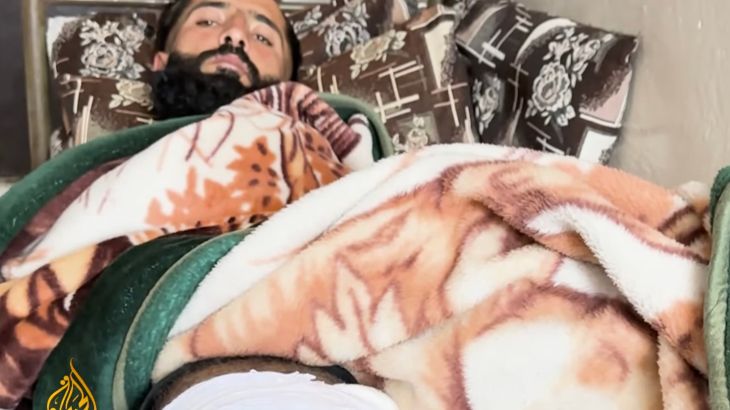Israeli incursions, abductions stoke fear in Syria’s occupied Golan Heights
Al Jazeera talks exclusively to families of those taken by the Israeli army whose actions are also causing an ecocide.

Israeli forces in Syria: Locals face abductions and loss of livelihoods
 Published On 21 Nov 202521 Nov 2025
Published On 21 Nov 202521 Nov 2025
Save
Jubata al-Khashab, Quneitra, Syria – When Syrians gather to record Israeli incursions, soldiers point their guns at them.
Israeli military incursions have become more brazen, more frequent and more violent since Israel expanded its occupation of southern Syria following the ousting of President Bashar al-Assad in December 2024.
Recommended Stories
list of 4 itemsend of list
Across Quneitra province, the Israeli military’s tanks have established checkpoints and patrols, even setting up gates. They stop and search civilians, and some are abducted.
Khadija Arnous’s husband and brother-in-law are among those taken from their home in July. Her brother-in-law was released from Sednaya prison, and now he is in Israeli custody.
At 3am (00:00 GMT) one day, Israeli soldiers ordered both men to leave the house and blindfolded them.
“We’ve had no news about them since,” Arnous told Al Jazeera, covering her face for fear of reprisal. “We contacted the Red Cross, but to no avail.”
“I have four children – my husband was the sole provider. I urge the government to find a solution for us. Why are the Israelis coming and taking whoever they want?”

Described by Israel as security operations, Syrian authorities and human rights groups refer to such incidents as abductions or unlawful arrests. As many as 40 people have reportedly been detained in recent weeks.
Israel first seized territory in the Golan Heights following the 1967 war. But after the fall of al-Assad, it claimed its 1974 disengagement agreement with Syria was void and has widened its occupation in Syria by some 400sq km (155sq miles).
Advertisement
Mohammad Mazen Mriwed, an elder from Jubata al-Khashab village, told Al Jazeera that people are living in fear of Israeli incursions and can no longer work their land.
“Since the fall of the regime, many are no longer building or cultivating,” he said. “We don’t know how the government will respond, but true relief will come only when the occupation ends.”
Al Jawalan Hospital in Quneitra has been subjected to multiple attacks by Israeli forces in recent years. The below satellite image combination shows it before and after Israeli strikes.

In addition to taking Syrians, Israeli forces are also fortifying their positions with large berms and watchtowers. Sanad, Al Jazeera’s fact-checking agency, has verified the establishment of nine new Israeli military camps in Syria since December 2024.

Local elders estimate 1,700 acres (688 hectares) of land seized by Israeli forces includes orchards, fields and grazing lands.
Israeli forces have flattened entire areas, uprooting trees believed to be hundreds of years old, to build more military presence on Syrian soil, villagers and shepherds say.
Mohammad Makkiyah went too close to a watchtower and was shot by an Israeli sniper. He says the first shot missed his head, but as he ran from a volley of fire, a bullet hit his leg.
In a nearby house, Hussain Bakr’s son and brother were taken five months ago.
“We complained to the UN and the Red Cross, who told us that they will ask the Israelis, but there is no response,” Bakr told Al Jazeera. “They are innocent, taken for no reason.”

Residents say interim Syrian President Ahmed al-Sharaa should remember his own family’s displacement when Israel occupied the Golan Heights. The president has previously said his grandfather was forced to flee the area in 1967.
Government representatives say they are trying for solutions through diplomacy.
But until the missing come home, words offer little solace.
“The situation is painful for the families and for us as a government,” Jamal Numairi, a People’s Assembly member from Quneitra, told Al Jazeera. “To the families, I say: the government will spare no effort to resolve the issue. I consider them kidnapped, not as prisoners.”
